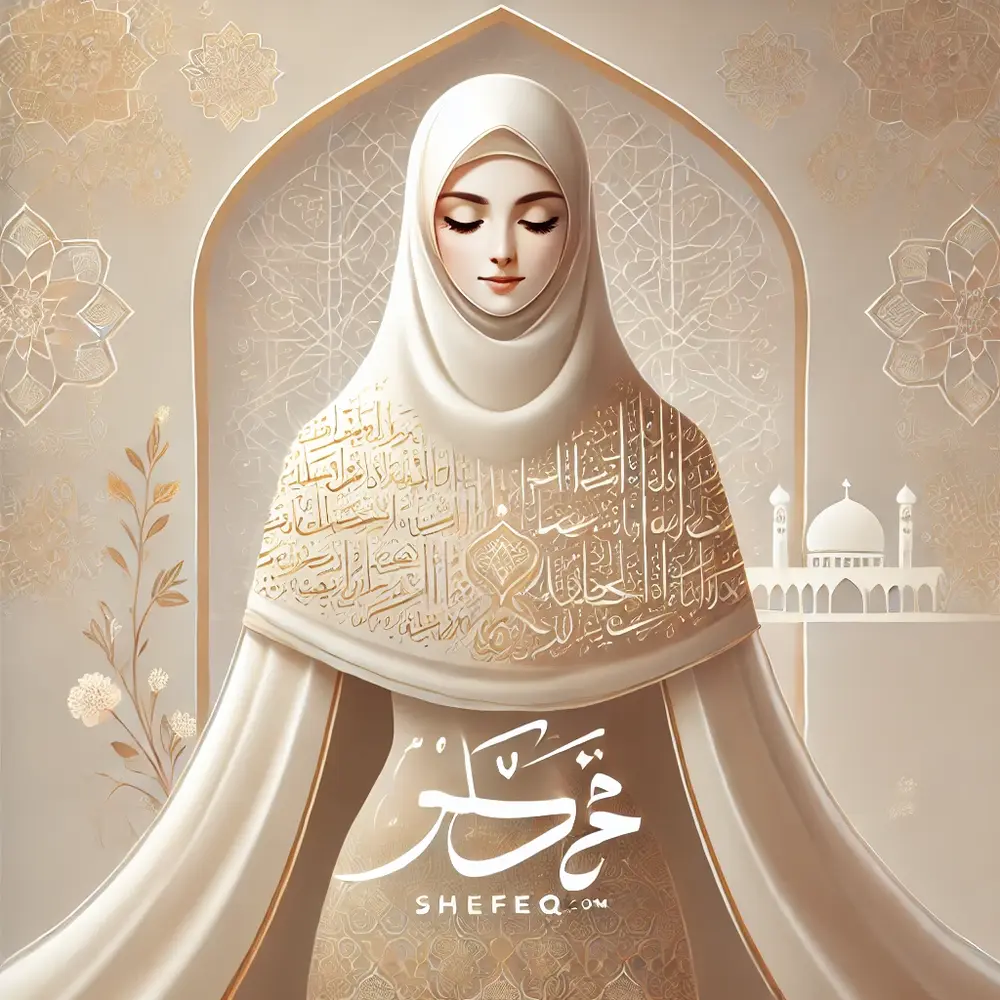Introduction: Two Perspectives on Women – Society and Religion
Throughout history, a woman’s position in society has constantly shifted: she was sometimes elevated, sometimes demeaned, and too often silenced. The West often tied her to freedom, the East to obedience. Yet Islam views woman neither as a silent obedient nor as an emblem of unbridled liberty. Instead, Islam embodies a divine system that bestows upon women identity, dignity, and rights.
In this article, we will examine Islam’s rights for women—social, familial, economic, and spiritual—by stripping away stereotypes and relying on authentic sources to uncover the true status of women in Islam.
1. Divine Equality in Creation
Islam recognizes that men and women share the same origin:
“O mankind, We created you from a male and a female…” (Qur’an 49:13)
This verse affirms that women were not created for men, but both were created for one another. Equality from creation is the cornerstone of Islam’s perspective on women.
2. From Pre-Islamic Darkness to the Light of Islam
Before Islam, Arabia viewed women as burdens or tools—often considered shameful. Daughters were buried alive, women were denied inheritance, and treated as property. Islam abolished these cruel customs entirely.
The Prophet (ﷺ) said:
“Whoever raises daughters and treats them kindly will be admitted to Paradise.”
For that era, this statement was revolutionary.
3. Economic Rights: Women Own Their Property
Islam grants women full property rights. A woman can manage her assets, work, and earn income. No man—father, brother, or husband—can claim her wealth.
-
Mehr (dowry): Given to the wife as her personal property.
-
Inheritance: Women inherit from their relatives.
-
Trade rights: Khadijah (RA), a successful businesswoman, exemplifies the empowered Muslim woman.
These rights were enshrined in the 7th century—when many societies still denied women personhood.
4. The Role of Women in Family
Islam likens family to a partnership where members complement rather than dominate one another:
-
The husband must provide for the wife financially.
-
A woman’s consent is essential: without it, marriage is invalid (nothing forced).
-
Women also hold the right to divorce (Khula).
-
The Prophet (ﷺ) said:
“The best among you is one who is best to his women.”
This establishes that Islam builds families on foundations of love, mercy, and justice.
5. The Right to Education: Seeking Knowledge is Obligatory
Islam places great importance on knowledge. Education for women is not merely allowed—it is a duty:
“Seeking knowledge is obligatory upon every Muslim—male and female.” (Hadith)
Aisha (RA) was not just the Prophet’s wife―she was among his most renowned scholars. Her narrations and legal rulings remain foundational in Islamic jurisprudence.
6. Worship Rights: Equal Accountability Before Allah
Women share the same religious obligations and spiritual responsibility as men:
-
Prayer, fasting, Zakat, and Hajj are required of both.
-
Women are personally accountable to Allah.
-
Their acts of worship are expressions of personal devotion—not merely familial or social rites.
7. Social and Political Rights
Islam recognizes women as active, empowered participants in society:
-
Women gave bay'ah (pledge of allegiance), including others of political significance.
-
In the Prophet’s time, some aided in battles—or even fought.
-
Women attended scholarly gatherings and public events.
This shows Muslim women were far from isolated—they were useful, active, and influential.
8. Protecting a Woman’s Honor and Dignity
Islam forbids anything that demeans women:
-
Strict punishments for adultery to preserve chastity.
-
Quranic verses condemn slander—protecting a woman’s honor.
-
Hijab in dress preserves identity and protects against objectification.
9. Historical Role Models: Women of Light
Throughout Islamic history, women embodied activism, scholarship, and leadership:
-
Khadijah (RA): A model of entrepreneurship, a pillar of support.
-
Aisha (RA): A leading scholar and transmitter of sacred knowledge.
-
Fatimah (RA): Embodying piety and simplicity.
-
Nusayba bint Ka’b: A warrior who defended the Prophet at Uhud.
These women not only practiced their faith—they shaped and spread it.
10. In the Modern Era: Confrontation or Return?
Today, the rights of women are frequently discussed—but often misconstrued. Freedom is sometimes twisted into exploitation. Islam, however, champions dignity—not mere autonomy.
Islam recognizes a woman as a person, protects her as a woman, and respects her as an individual. These rights are not modern liberties—they are divine justice.
Conclusion: Woman—A Divine Trust, Pillar of Society
Islam does more than grant rights—it honors, protects, and elevates women. A woman is a mother, a partner, a scholar, a businessperson, a builder of society—not just a bearer of life but a trust from Allah.
Compared to contemporary rhetoric about women’s rights, Islamic rights are rooted in spirituality, humanity, and enduring moral principles. They are not obsolete—they are a call back to forgotten human values.
Islam’s treatment of women should not remain in history—it should be embedded in every believer’s life. Because valuing women means valuing ourselves and our collective humanity.

